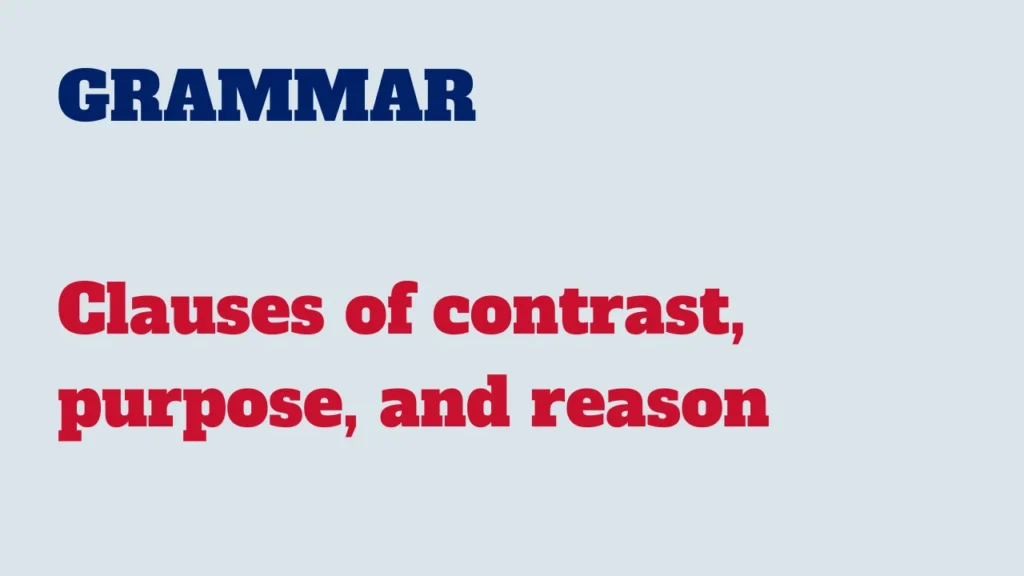Understanding clauses that express contrast, purpose, and reason is crucial for constructing complex and nuanced sentences in English.

In this lesson, we’ll delve into these types of clauses, exploring their structures, common connectors, and how to effectively use them.
Clauses of contrast:
Structure:
Although/ Even though + clause + main clause
Or main clause + although/ even though + clause
Usage:
Expresses a contrast or unexpected result between two clauses.
Examples:
Although it was raining, we went for a walk.
She didn’t pass the exam even though she studied hard.
Clauses of purpose:
Structure:
In order to/ So as to + [infinitive] + [main clause]
Or [main clause] + in order to/ so as to + [infinitive]
“Usage:
Indicates the purpose or intention behind the action in the main clause.
Examples:
In order to succeed, you must work hard.
She took extra classes so as to improve her skills.
Clauses of reason:
Structure:
Because/ Since/ As + clause, [main clause]
Or [main clause] + because/ since/ as + clause.
Usage:
Provides a reason or cause for the action in the main clause.
Examples:
Because it was raining, the event was moved indoors.
Since you’ve finished your work, you can relax now.
Key connectors:
Contrast:
Although, even though, though, whereas, while.
Example:
Although it was late, we continued the meeting.
Purpose:
In order to, so as to, to, in order that.
Example:
She worked hard in order to achieve her goals.
Reason:
Because, since, as.
Example:
Because it was a holiday, the office was closed.
Placement in sentences:
Contrast:
Usually found at the beginning of a sentence, but can also be placed at the end for emphasis.
Purpose:
Typically introduced at the beginning or the end of a sentence.
Reason:
Can be placed at the beginning or the end of a sentence.
Common mistakes to avoid:
Confusing purpose and reason:
Incorrect: She took a break because to relax.
Correct: She took a break in order to relax.
Overusing connectors:
Incorrect: Although it was raining, yet we went for a walk.
Correct: Although it was raining, we went for a walk.
Mastering clauses of contrast, purpose, and reason enhances your ability to express complex ideas and relationships within sentences. By understanding the structures, connectors, and appropriate placements, you can construct more sophisticated and coherent sentences. Practice incorporating these clauses into your writing and speech to strengthen your language skills. Happy learning!



